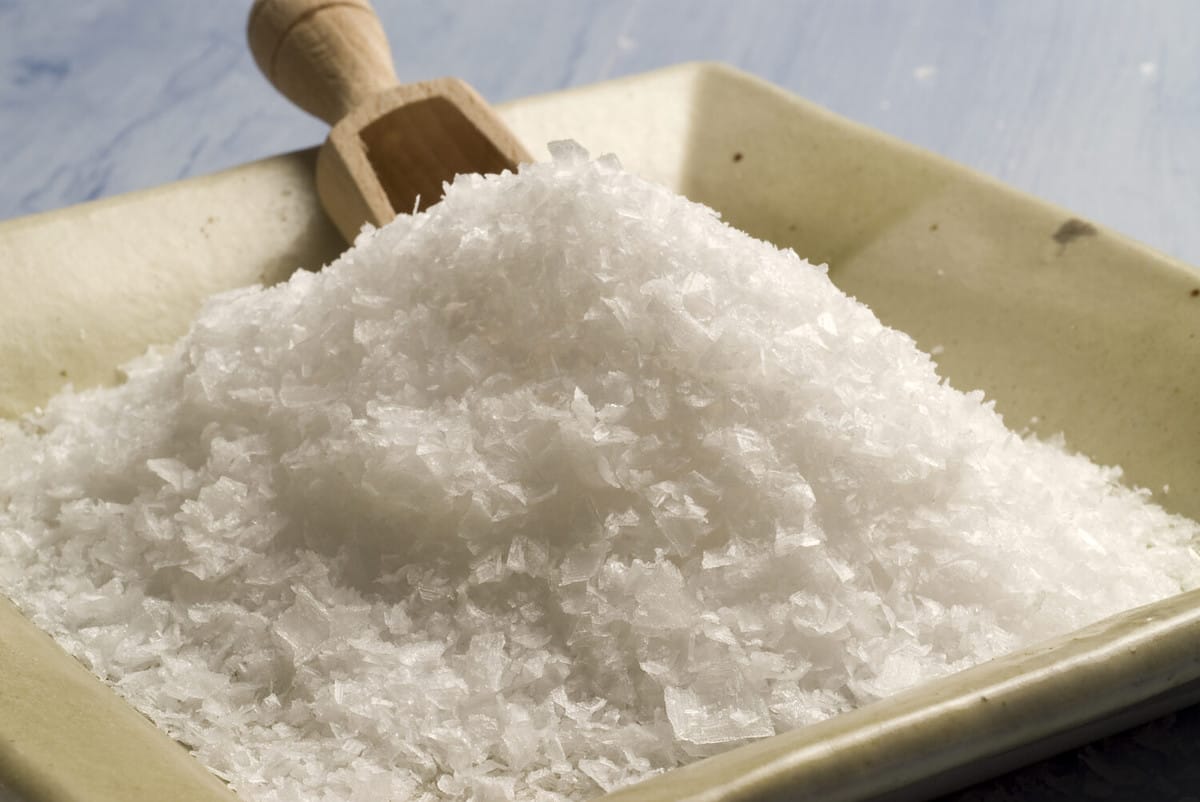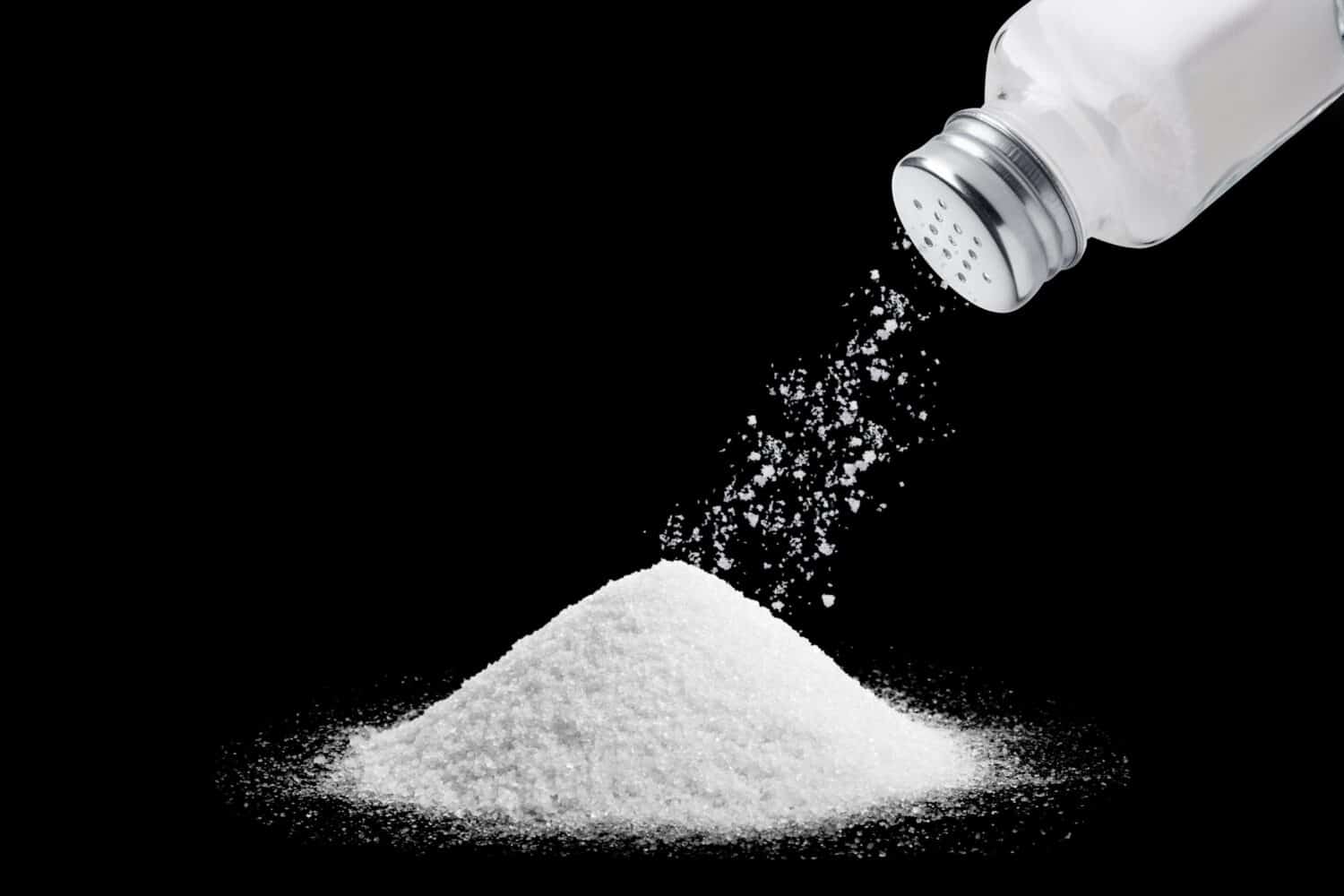Kosher vs. iodized salt: which is healthier? What's the better choice when cooking food? These are essential things to know when cooking, baking, or general need of salt. While they may look similar and taste somewhat the same, they are quite different.
Salt is the spice of life. It's one of the best things to add to food and desserts. Additionally, it's one of the five basic taste sensations that go with sweet, sour, bitter, and umami. But how is salt different when it comes to kosher and iodized? Is there a better choice that exists between them?
This guide uncovers everything you need to know about the differences between kosher and iodized salt. We look at what makes them unique, which is healthier, and how they are used for different foods.
What Is Iodized Salt?

©Patty Orly/Shutterstock.com
Iodized salt is regular salt except that it's sprayed with sodium iodide or potassium iodide. You'll find iodized salt in many restaurants and sold at local stores.
However, there's a misconception that salt is bad for you. When it comes to iodized salt, there are a lot of benefits that help support your immune system and help treat fibrocystic breast disease. Additionally, while iodized salt is abundant in the United States, several countries are deficient in this salt.
Without this salt, it could cause health problems like the swelling of the goiter in the next. Other health issues may involve hairlessness, fatigue, and weight loss. Conversely, too much salt can cause high blood pressure and stroke. That's why enjoying any salt, especially iodized salt, is essential in moderation.
What Is Kosher Salt?
Kosher salt is known for having the most prominent and coarsest grain of any salt. It's also composed of large flakes instead of tinier grains. If you cook with this salt, you'll find it doesn't dissolve as quickly as other salt.
The name Kosher salt comes from Jewish culture, when it referred to using this salt to drain blood from the meat. However, this salt is not usually known as kosher beyond its name. If it were kosher, the standards for making and processing it would differ significantly.
Also, Kosher salt is often more expensive because it's not iodized and contains no minerals. One of the best benefits of kosher salt is that it's great for curing and cooking meat.
Can You Substitute Them?
While you may think you can substitute salt for salt, the key is to know if the ratio is the same. Kosher and iodized salt are not the same, especially when you look at the ratio.
For example, to produce the same effect, you'd need two tablespoons of iodized salt for every tablespoon of kosher salt. Keep this in mind when you make foods because it can change the level of saltiness of your food if you're not careful.
The Major Differences Between Kosher and Iodized Salt
Salt comes from sodium chloride. When it comes to kosher salt, that's what it's solely made from. There are no other minerals added to it, like iodized salt. While there isn't a significant taste in flavor, there is a difference in the health benefits you're trying to get from your food.
For example, if you need to improve your thyroid health, look no further than iodized salt. It plays a key role in thyroid health and hormone production. It also helps improve your heart health blood pressure, and keeps you hydrated. However, too much-iodized salt can cause thyroid inflammation.
Consuming too much kosher salt will raise your blood pressure, increasing your risk of a stroke or heart disease. Finding a balance that allows you to consume either iodized salt or kosher salt is critical to improving your overall health.
If you're looking to get the best health benefits from either salt, consider these tasty recipes.
Here are the best recipes with iodized salt:
- Salt bagels
- Salted fudge brownies
- Salt potatoes
- Salted popcorn
Here are the best recipes with kosher salt:
- Brine and roasted turkey
- Salt-roasted beets
- Pork prime rib
- Brine grilled pork
Kosher vs. Iodized Salt: What's the Better Choice?
Kosher and iodized salt are used for similar purposes when it comes to cooking food. While some people prefer kosher salt because it's easy to pick up and sprinkle over food, the taste of it on food is similar, if not the same
The most significant difference between kosher and iodized salt is the health difference. Some people prefer iodized salt because of the health benefits it provides. Beyond this difference, kosher and iodized salt are great things to add to your food. Trying both can give you a better idea of which one you like more.
The image featured at the top of this post is ©Kittiphan Dusdeeworaruk/Shutterstock.com.

